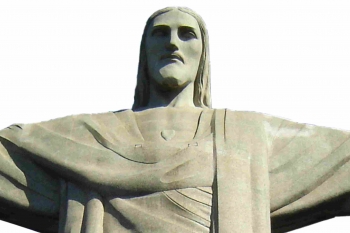Marcelo Neri was interviewed by the newspaper O Globo to talk about FGV Social's research in the area of ??Economics of Religions.
In 2011, the FGV Social published in Revista Horizonte, the main publication linked to the topic of religiosity, the article New Map of Religions. The study already showed that among the 27 units of the federation and in the respective capitals or in the peripheries of the big cities, the most Catholics were growing more than the other areas. The survey pointed to the recent evolution of the different beliefs for different socio-demographic and geographical groups in Brazil. What was the change of the different religions? What are the more and less Catholic states? What about the number of people without religion? Which religion has the greatest weight in the new Brazilian middle class and among the poor? What religion are the young people following? Are women still more religious than men? What is the open ranking of religions in the country? What percentage of income is proper to each religious group? – were some of the questions answered by the survey. The survey also traced a long-term panorama of Brazilian religious diversity, analyzing the evolution of different beliefs since the late nineteenth century. It also provided new data comparing 156 countries on the frequency of religious activities and the importance of religion perceived in different nations. The study offered society the most comprehensive updated statistical survey of religions in the country.
In the new research, Neri says that there is a very strong downward trend in Catholicism: "It is a movement that has already taken a few decades, of course, but adopting a historical vision, it is a recent one. In the Demographic Census of 1950, 95% still claimed to be Catholic. The sharpest drop began after the 1980s, reaching 64% in the last Census in 2010. It remains to be seen whether these two-thirds are a floor or whether the fall will continue. "
For Neri, while the economic boom after 2003 recession coincided with the growth of traditional Protestant churches (such as Baptists and Methodists), our studies indicate that neo-Pentecostals (newer lines such as the Universal Church of the Kingdom of God and Worldwide Church of God's Power) grow in crises like the recent one. We saw this happening during the so-called lost decades of the 1980s until mid-1990s. It's a thesis to be re-tested. He adds: "You have to be careful about this topic, it is as fascinating as it is delicate."
In the territories of old Brazilian poverty, like the rural areas of the Northeast, Catholicism continues to prevail. Neo-Pentecostals continue to grow in particular on the periphery of metropolises.
The director of the FGV Social recalls that, comparing the cases of several countries, evangelicals do not exceed 30% of the population. The only case in which this index was exceeded was in Guatemala, in a scenario of prolonged civil war where new churches emerged and prospered. For Neri, "religion in Brazil has unique characteristics, it is an important variable to capture our subjectivity. To observe and detail its evolution is to follow the transformation of Brazilian society itself over the decades. In addition, it defines our presence in the rest of the world. I had the opportunity to experience this in Nicaragua, India, South Africa. If you arrive in these countries with insomnia, still adapting to the time zone, and turning on the TV in the middle of the night, you will inevitably come across a Brazilian pastor or a national church, in programs like the one we have here. It's a genuine export product. "
Check out the full interview (in Portuguese) at http://cps.fgv.br/midias/entrevista-crise-favorece-os-neopentecostais
Check out other FGV Social materials on the topic (in portuguese):
- Research "New Map of Religions" (Novo Mapa das Religiões)
- Research "Economy of Religions: Recent Changes" (Economia das Religiões: Mudanças Recentes)
- Research "Portraits of Religions in Brazil" (Retratos das Religiões no Brasil)
- Articles "Economy of religions" (Economia das Religiões), "The largest Catholic economy" (A maior economia católica), "Metropolitan crisis and religious conversion" (Crise Metropolitana e conversão religiosa)
- Data Overview - Evolution of Religiosity (Evolução da Religiosidade)





